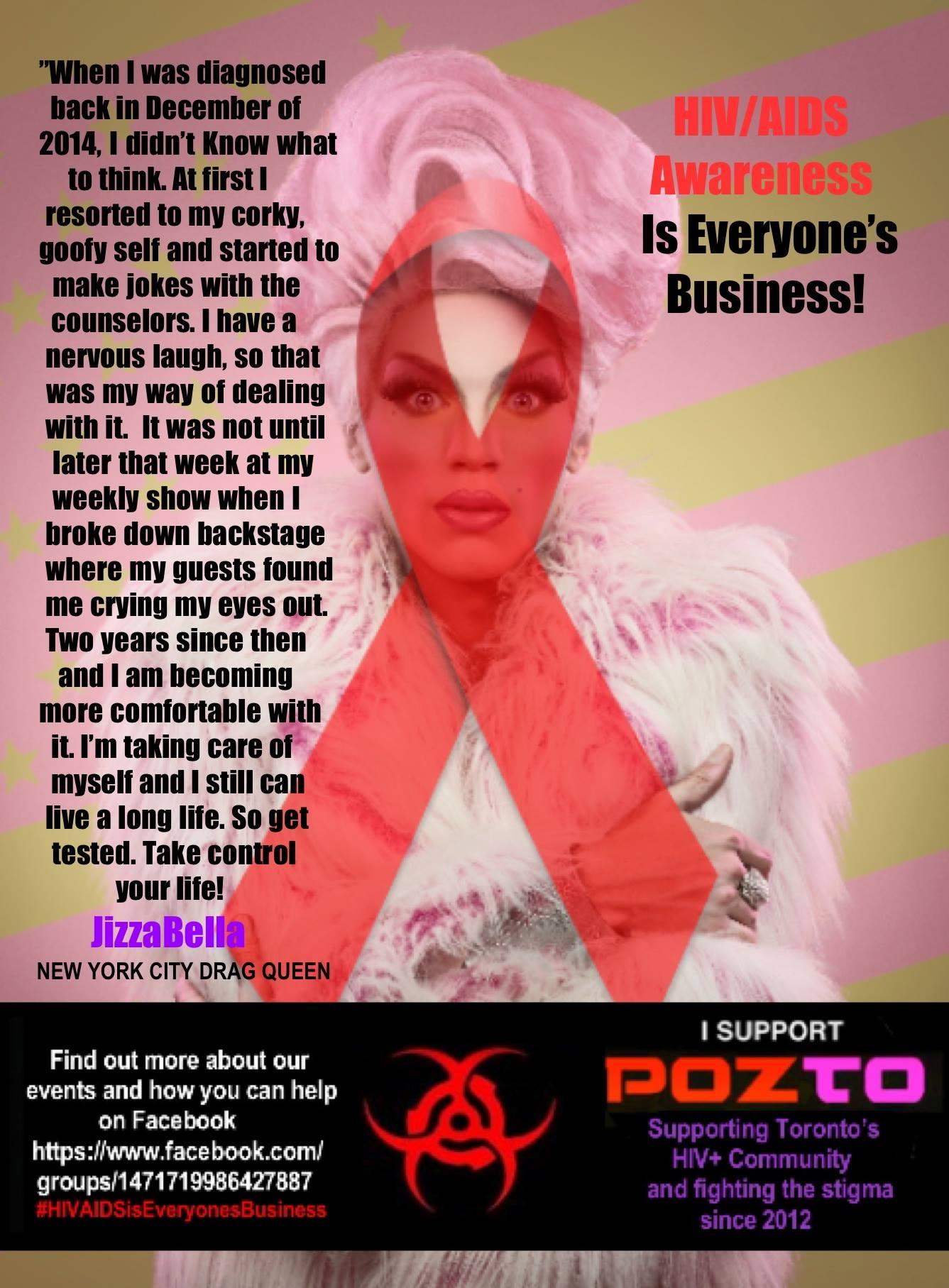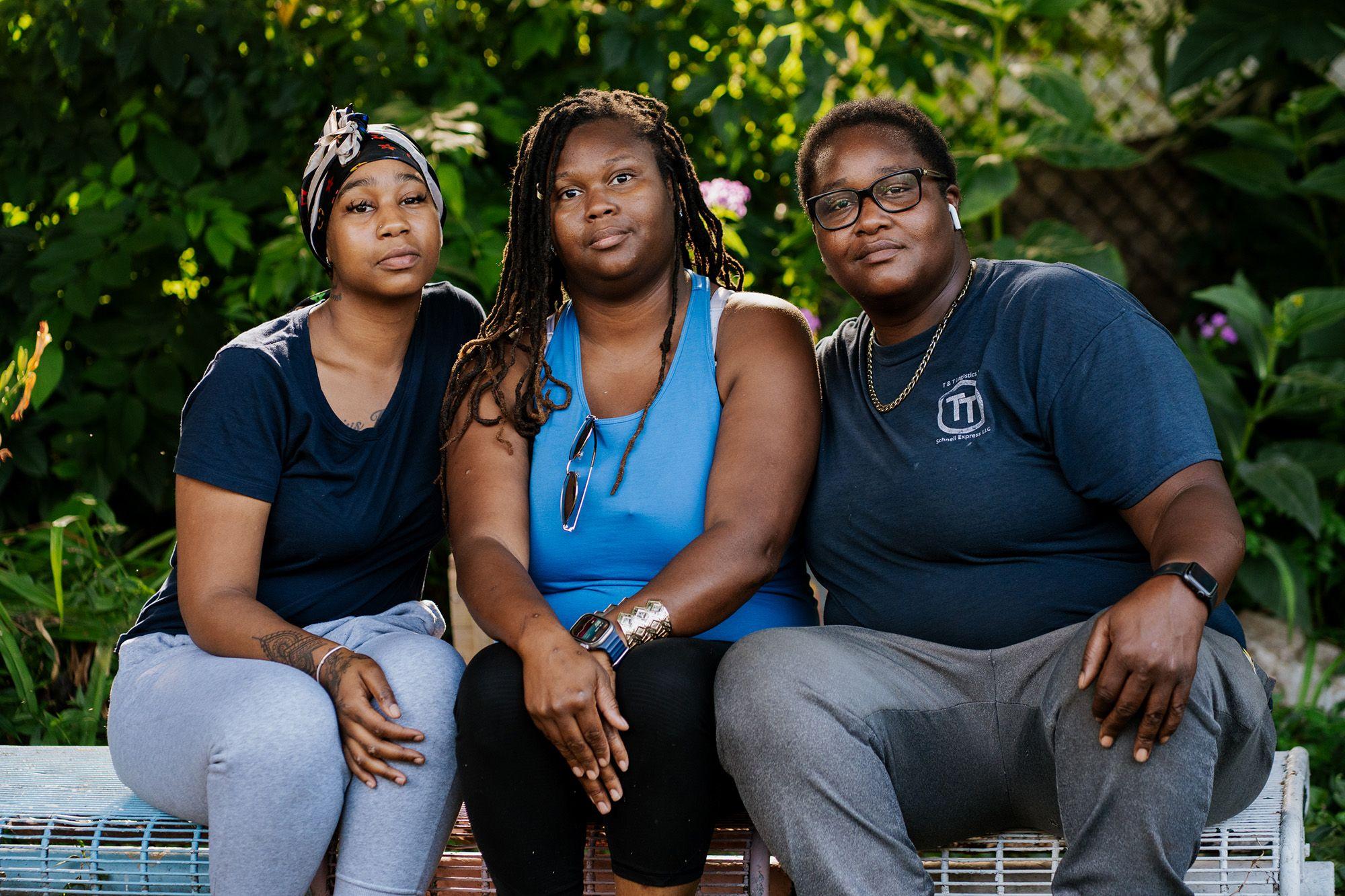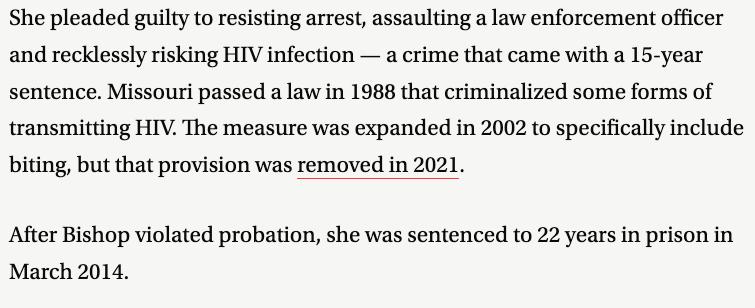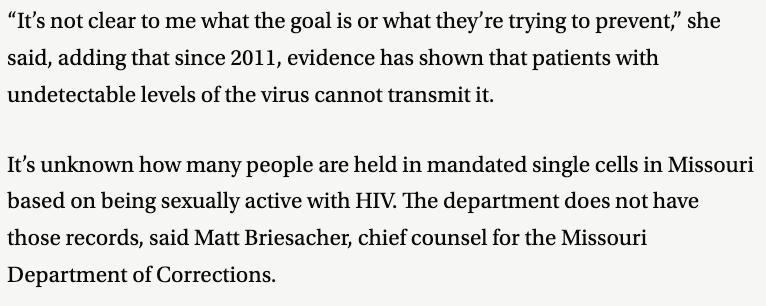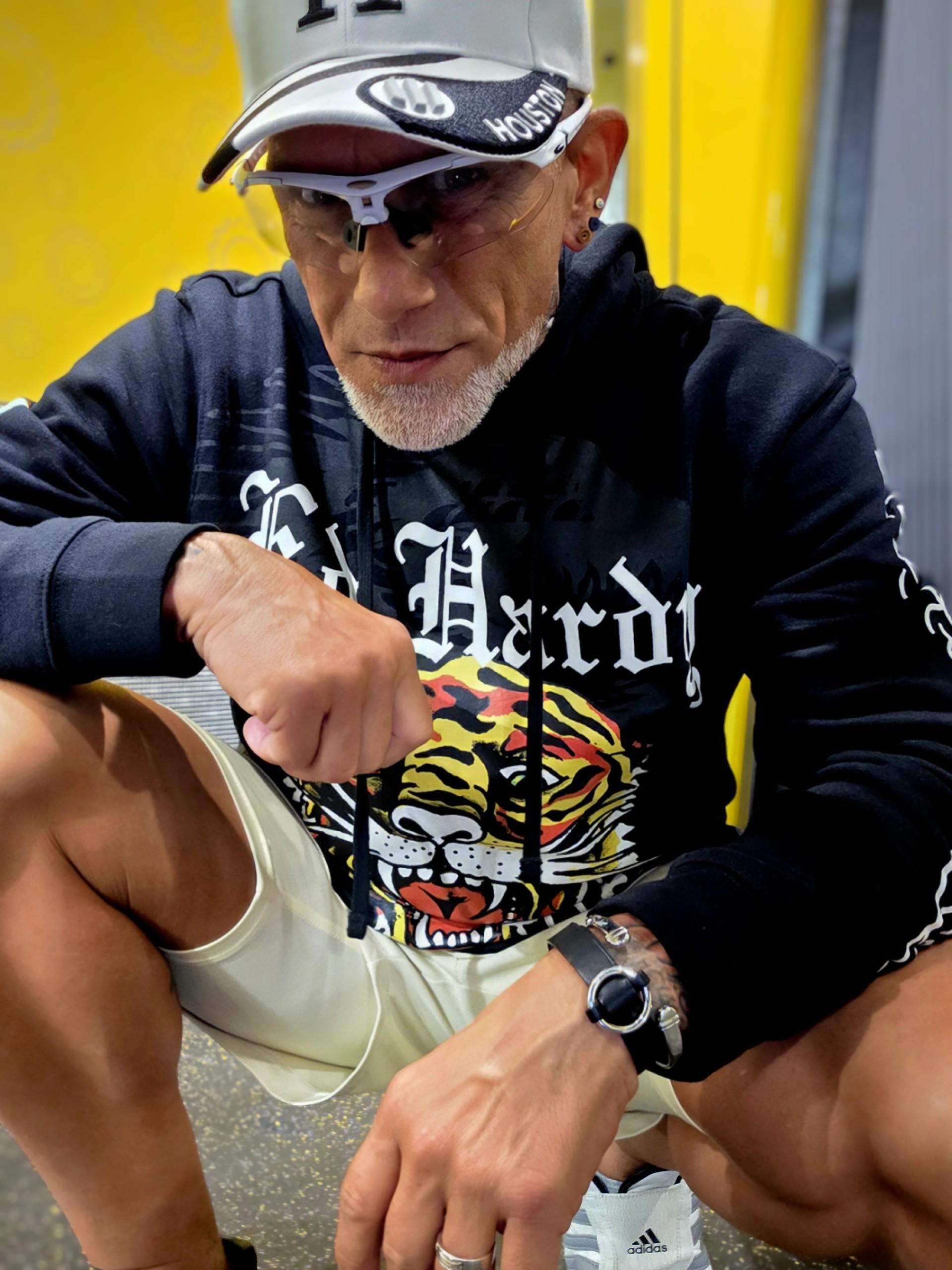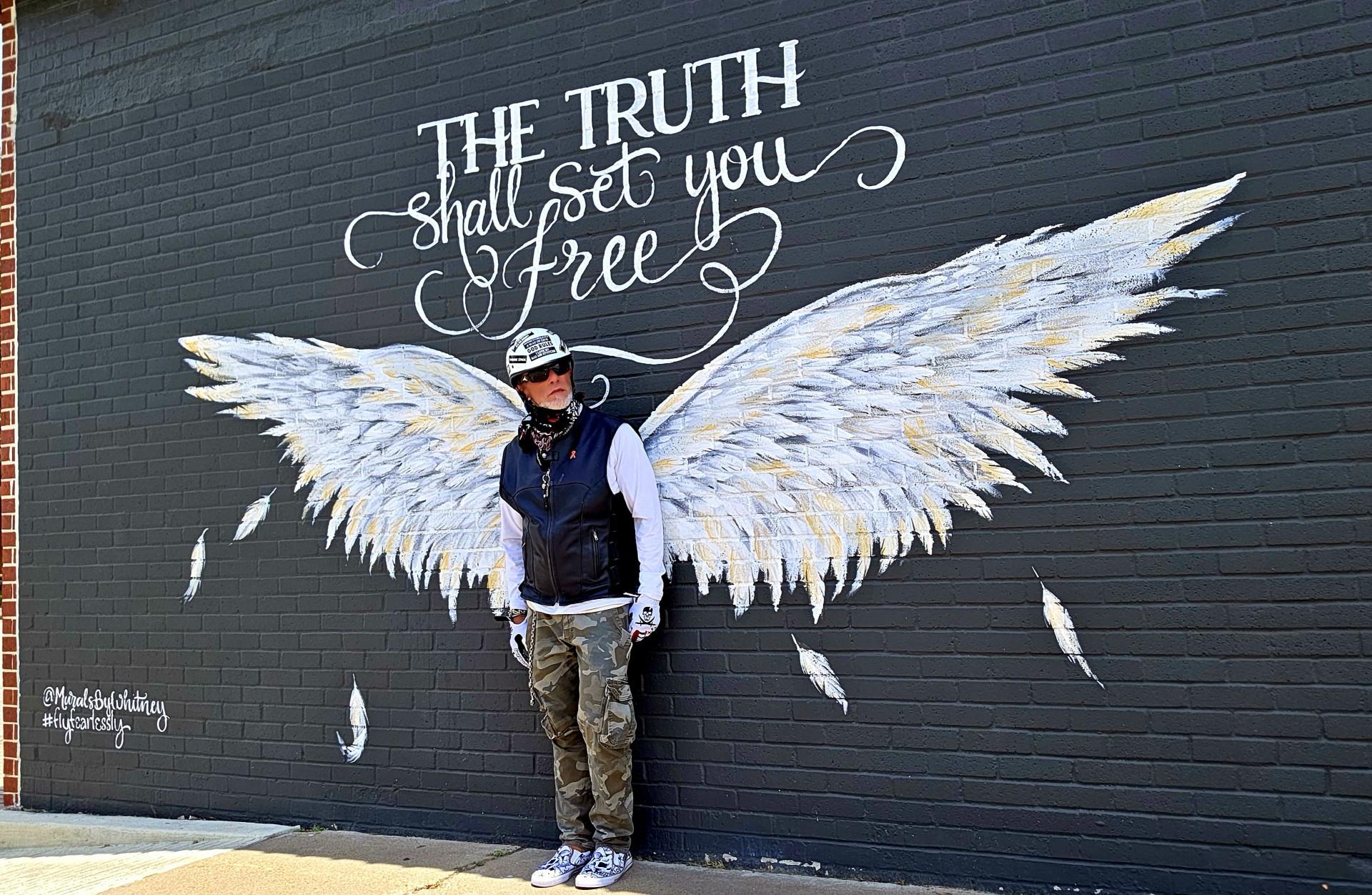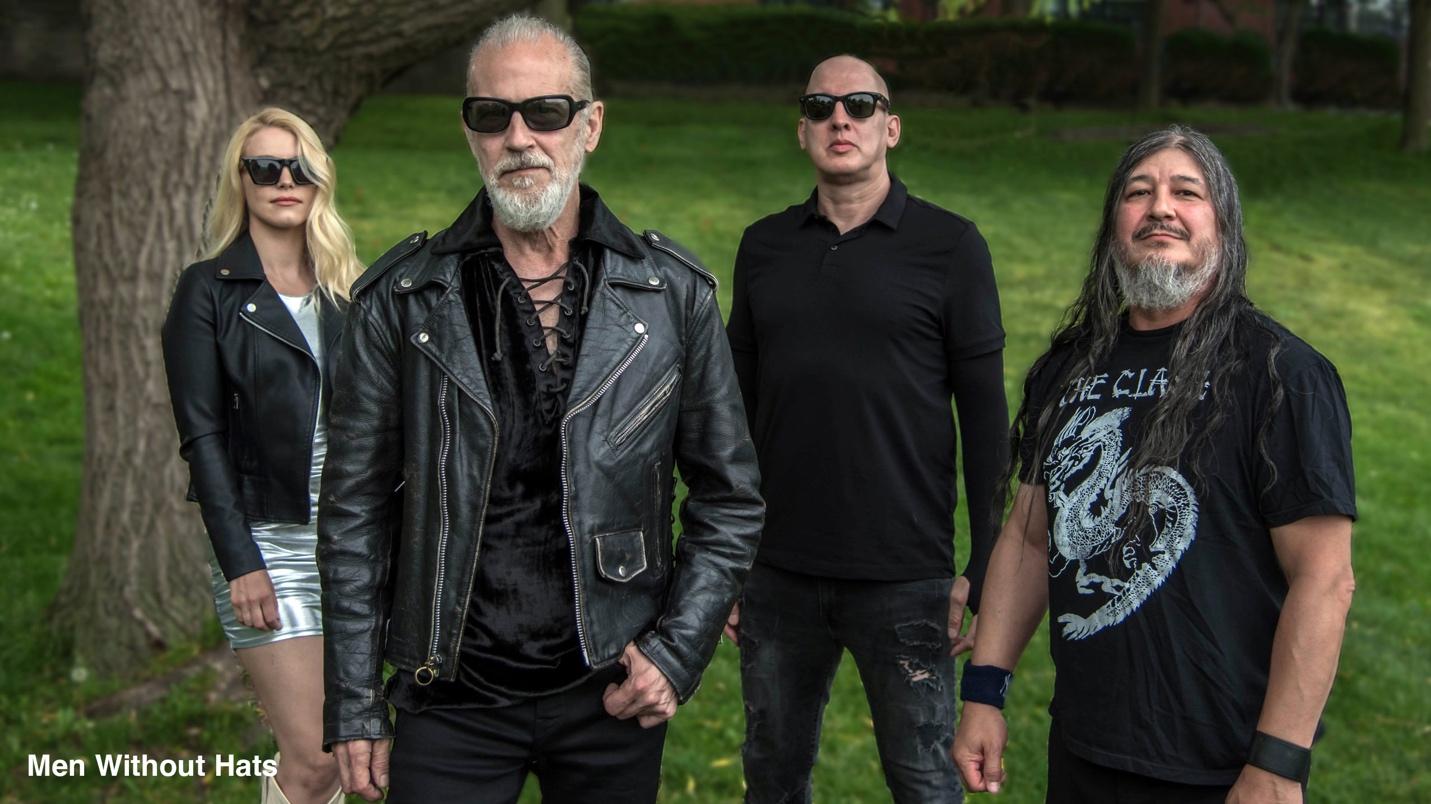RANDY DAVIS’ SUBSTACK
U=U Awareness Is Growing but Not Fast Enough
New research confirms progress but reveals persistent gaps in understanding across key populations
The global HIV response has made enormous strides in recent decades but one of the most powerful breakthroughs remains unevenly understood. The message that a person living with HIV who is on effective treatment and has an undetectable viral load cannot transmit the virus sexually, known as Undetectable Equals Untransmittable or U=U, has transformed both individual lives and public health policy. Yet new research published in Pathogens reveals just how far we still have to go.
In a recent systematic review and meta-analysis titled “Undetectable Equals Untransmittable: A Cross-Population Systematic Review and Meta-Analysis on
Awareness and Acceptance”, researchers Georgiadis and colleagues compiled findings from 43 studies involving more than 227,000 participants across four key populations: people living with HIV, healthcare professionals, men who have sex with men, and the general population. What em erged is a data-rich snapshot of where U=U knowledge stands today and where it urgently needs to improve.
Not surprisingly, awareness of U=U was highest among people living with HIV. Among healthcare professionals it was also moderate to high, though still far from universal. The numbers were more concerning among men who have sex with men, a group disproportionately impacted by HIV, and particularly low among the general population. The same pattern emerged in terms of acceptance. Complete acceptance of U=U, meaning a person fully agrees that someone who is undetectable cannot sexually transmit HIV, remained low among men who have sex with men and in the general public. Partial or any acceptance fared slightly better but still reveals a significant gap between science and public understanding.
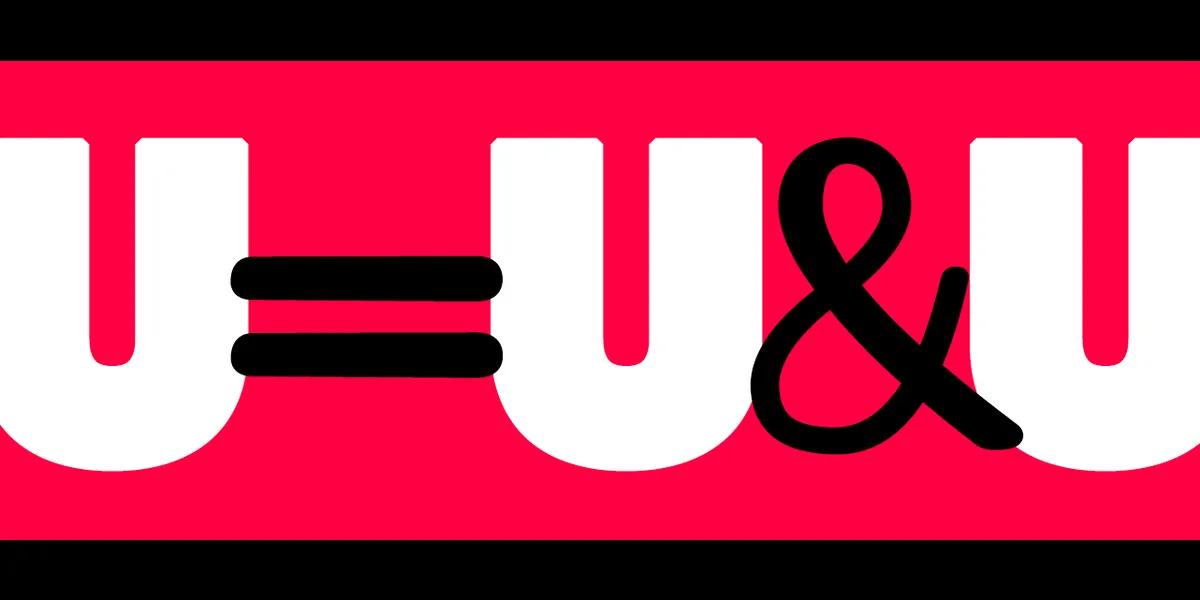
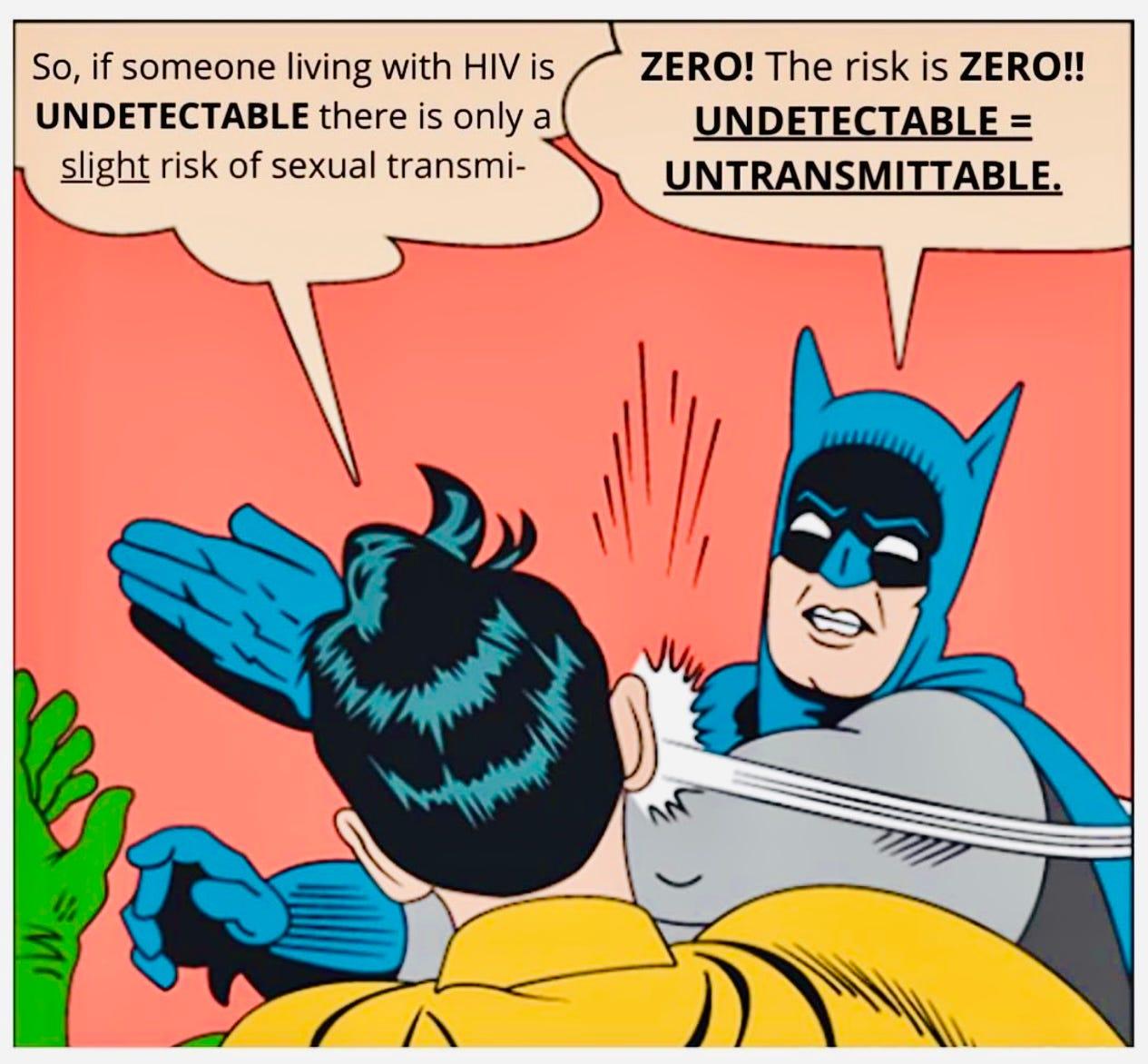
These numbers are not just data points. They represent the real-world limitations of how life-saving information is, or is not, being communicated. In my work as a Canadian HIV advocate focused on education, stigma reduction, and U=U awareness, I see the consequences of this gap every day. Conversations with healthcare providers who hesitate to endorse U=U with confidence. Encounters with people newly diagnosed who were never told what undetectable means. Social media comments from the public revealing confusion, fear, or misinformation. The study validates what many of us already know. U=U may be settled science, but it is far from settled knowledge.
The fact that even healthcare professionals scored only moderately in terms of U=U awareness and acceptance is especially striking. These are the people we rely on to deliver up-to-date information to patients. When providers do not fully embrace or understand the science, their uncertainty gets passed on. I have long argued that clinical settings must normalize and proactively share the U=U message, not only to reduce anxiety among people living with HIV, but to help combat stigma before it ever takes root. Evidence-based resources such as the UBC U=U course for healthcare providers are a critical part of that process.
Just as urgent is the need to reach the general population. HIV stigma thrives where understanding falters. That includes workplaces, schools, dating apps, and social networks. The recent Canadian Positive People Network poll already confirmed what many of us suspected. Many people still do not know what U=U means, and fewer still believe it. This new international review reinforces that finding with global scope and clarity. For advocates, public health agencies, and community-based organizations, the takeaway is clear. We cannot afford to assume U=U is universally understood. We must keep talking about it. We must keep showing up with messages that are grounded in science and accessible to everyone.
This is especially true in rural or conservative areas where conversations around HIV remain limited or steeped in decades-old myths. In my own life, I have faced challenges when promoting U=U locally. Resistance from organizations, ignorance from providers, and silence from leadership. Yet I continue to believe that U=U is not just a message of prevention. It is a message of dignity. It tells people living with HIV that they are not a danger to others. That they are not broken. That they can love, work, parent, and exist fully without shame.
We now have more than a decade of conclusive evidence supporting U=U. Studies like HPTN 052, PARTNER, and Opposites Attract have all shown zero linked transmissions when a person is undetectable. That is not theoretical. That is science. And it is time we reflect that certainty in every facet of our communication.
The researchers behind this new meta-analysis have given us an invaluable tool. Their work lets us measure not only where we are, but who we are leaving behind. It challenges us to do more than celebrate progress. It reminds us that equity in messaging is as important as equity in treatment. Because what good is breakthrough science if the people it was meant to liberate never hear about it?
As this work continues, momentum is building toward the launch of U=U University, a transformative partnership between Prevention Access Campaign (PAC) and the Centers for Disease Control and Prevention’s (CDC) Division of Global HIV and TB PEPFAR program. U=U University will serve as an international training platform designed to equip healthcare professionals, community educators, and advocates with the tools and confidence to communicate U=U clearly and consistently. This new learning environment will
bring lived experience, clinical science, and public messaging together in a way that can finally begin to close the awareness and acceptance gap highlighted in the research. With an emphasis on global reach and cultural relevance, U=U University has the potential to transform how this message is shared, understood, and acted upon in clinical settings and communities around the world.
What gives me hope is that this moment is not being driven by institutions alone. It is being shaped by people living with HIV, allies, educators, and advocates who refuse to let the truth be buried by fear. The same energy that pushed U=U into global policy conversations now fuels the next phase of this movement. We are not just trying to inform. We are trying to liberate. That means recognizing that evidence is only powerful when people believe it, share it, and make it part of how we live and relate to one another.
If you are a health provider, talk about U=U in every relevant conversation. If you are an educator, integrate it into your materials. If you are a person living with HIV, know that your voice helps close this gap every time you speak your truth. And if you are in a position to fund or support HIV awareness campaigns, ensure that U=U is front and centre.
The more we amplify this message, the closer we come to a world where HIV is no longer feared, misunderstood, or used as a reason to exclude. Because undetectable really does mean untransmittable. And everyone deserves to know it.
Find the full article here: https://www.themarshallproject.org/2025/08/21/missouri-prisonhiv-solitary-policy This is not the complete article. Be sure to get the whole story.
Listen to this article here: https://soundcloud.com/the-marshall-project/a-woman-withhiv-spent-six-years-in-solitary-she-sued-and-missouri-will- change-its-policy
Honesty Bishop could hear the screams of other people in solitary confinement.
Sometimes It was so cold in her cell, she could see her breath. She dealt with scabies and mold. Her days and nights were spent in extreme isolation.
The Missouri Department of Correction kept her locked in a cell about the size of a parking space for over six years.
She wrote letters to her sister, Latasha Monroe, in St. louis. They both wondered why Bishop continued to be held in such severe conditions at JeQerson City Correctional Center
a man’s facility. Interviews and records on Bishop’s years in solitary confinement paint a dark picture of a person who felt alone and hopeless, and, in the depths of despair, was driven to self-harm.
Bishop, a transgendered woman, initially landed there after her cellmate tried to sexually assault her in spring 2015.
She was HIV+ and because of the assault was classified as “Sexually active” – even though she was the victim and had been on medication, making the virus undetectable and therefore untransmissle, according to a federal lawsuit filed against Missouri Department of Corrections.
Among the reasons people can be kept in isolation, according to the department’s policy, are murder, rape and being sexually active with HIV. In her suit, Bishop said corrections oQicials kept her in solitary confinement because of her HIV status.
Whenever she appeared before a committee that reviewed her placement in solitary, which generally took place every 30 or 90 days, corrections oQicials noted 15 times when Bishop had no violations since the previous review.
“I’ve been good,” she told them during a hearing on her solitary confinement in January 2016, and again that September.
Though she filed grievances about how long she had been kept in solitary, her pleas were ignored. Department of Corrections oQicials wouldn’t release her from the unit until 2021 –after more than 2000 days.
Missouri is one three states that singles out people with HIV when it comes to solitary confinement, according to a review of 49 states’ policies on administrative segregation and restrictive housing.
The department’s HIV policy will now be changed under the terms of an August 20th settlement that resulted from the lawsuit.
The state agreed to remove language singling out people with HIV for segration. The terms also include conducting an assessment of anyone with HIV who is sent to solitary and mandatory training for some prison staQ.
The departmentwould not comment specifically on the policy or the lawsuit. Karen Pojmann, a spokeswoman for the agency, said a committee is in the process of overhauling restrictive housing. Two prisons are piloting a new model that includes “meaningful hearings” and programming to help people renter the general population in prison, she said.
Bishop did not live to see the policy change – she died by suicide on August 13th, 2024. She was 34.
From left: Bishop’s sisters Bonita Scott, 20; Christina Monroe, 35; and Latasha Monroe, 38; at the Transgender Memorial Garden in south St. Louis, in July 2025 BRIAN MUNOZ/ST. LOUIS PUBLIC RADIO
Jefferson City Correctional Center in Jefferson City, Missouri. KATIE MOORE/THE MARSHALL PROJECT
Be sure to use the link at the beginning of the article to finish this article.
Dating With HIV
EDITOR NOTE: Nour is our ally who is learning about what the HIV+ Community goes through. In this article, she decided to create profiles on several different dating sites to see the reactions to an HIV+ profile.
I’m a total novice when it comes to HIV/AIDS. I had no idea what it was really like to live with HIV or what comes with it. To bridge that gap, I decided to create a dating profile of someone who is both HIV-positive and wears a hijab. I don’t wear a hijab myself, but I am Muslim, and I thought it would be interesting to see how people would react to that combination. Women didn’t match with me at all while men did.
For almost a month, I swiped right on both men and women to get a sense of the sentiment around this identity. In my story, I explained that I contracted HIV from my ex-boyfriend, who had been using needles something I didn’t know about at the time.
Tinder
Tinder was the most responsive platform. Men often swiped right and told me they were fine with dating me as long as I was U=U. For those who didn’t know what U=U meant, they asked me directly. One thing I noticed was that women didn’t swipe right on me at all. Based on Tinder, it seems you can find love as an HIV-positive woman as long as you’re not looking for women. I did meet one man who was also HIV-positive, and we connected over that shared experience. When I asked about his dating life, he said it was “alright.”
Hinge
On Hinge, I actually thought I met the love of my life but I stuck to the story and kept things professional. Just like on Tinder, only men matched with me, no women. The difference was
that people on Hinge were more inquisitive. Some already knew about U=U, while others didn’t. One man said he was fine with it as long as I stayed on medication, which is also what I understood to be true.
Bumble
Bumble felt similar to Hinge, but quieter. Men would swipe right, but the conversations fizzled out quickly. Out of all the apps, Bumble seemed the hardest for making real connections, especially with younger people.
Muzz
Since I was curious about how my identity would be received within the Muslim community, I tried Muzz, a Muslim dating app. Many men swiped right, though some unmatched me soon after. These conversations felt more serious, since the men on Muzz were mostly looking for marriage. I ended up having deep discussions about kids and finances. Interestingly, a number of men were still open to dating me, which was reassuring.
Conclusion
Overall, it seems relatively possible to find love on dating apps as an HIV-positive person at least if you’re a woman seeking men. But for a gay woman, it appeared much more difficult. That could be due to the extra layer of trust required, or maybe because of the hijab, or maybe both. I couldn’t test as widely on Bumble and Hinge, but the matches I did get were mostly curious and cautious rather than dismissive.
WHAT IS PINK CINEMA? It’s the new Toronto LGBT Film Club where you can join the PINK CINEMA facebook group and vote on what we show on the third Tuesday of each month.
Join here: https://www.facebook.com/groups/195374003920591
Event page here: https://www.facebook.com/events/1868769597284961
Donations go directly to Toronto’s People With AIDS Foundation.
I often complain about social media and how it can be a problem for our young people. And while it can be blamed for a lot of misinformation, it can still connect you with people all over the world. And I love discovering new people from the community of folks living with HIV. Why? Because I feel like it's important to share their stories and learn from their journeys. Today...I am grateful for the internet because it has introduced me to a long-term survivor who I believe will be inspiring for many. Ladies, Gentlemen and our Non-binary readers...let me introduce you to Mr. Bob “One Tough Pirate” Bowers.
AK: Bob...I just would like to thank you again for answering my email. I actually just sent a cold message with a brief introduction. So, it was really nice of you to even open it. How are you today?
BB: I’m alive, I’m breathing, and I’m walking in faith that’s a damn good start to any day. Especially after my recent bout with pneumonia. Truth is, some mornings hit like a freight train physically, emotionally, spiritually. But I do my very best not to let pain dictate my purpose. I thank God the moment my feet hit the ground, and then I get to continue sharing my message of love and hope with the world. At 62, living 42 years with HIV, I still feel called and I remain blessed. So yeah today, I’m grateful, a little sore, fired up, and moving forward. What a genuine blessing.
AK: So, I have read over your profile on BlueSky and I have an idea of your personality but would you mind telling our readers a little bit about yourself? Where are you from? What's your background?
BB: My name’s Bob Bowers, but most folks who know the real me call me One Tough Pirate. I was born in Long Beach, California and raised in a small town of about 800 people in the middle of the woods Powers, Oregon. These days, I’m holding it down in Houston, Texas with my wife Nita and our three pups.
I’m a 42-year long-term survivor of HIV/AIDS infected at 19 and diagnosed at 22, back in the early days when all you were given was stigma and a death sentence. Somehow, I’m still here. It's surreal as hell, and I give all praise and thanks to God and the gay community. God and my queer friends were all I had from 1984 on, when doctors told me I had either Hodgkin’s Disease or “this thing called AIDS” and to prepare for the worst. That diagnosis became ARC (AIDS-Related Complex) in 1985, and an AIDS diagnosis in 1986.
But I’m not just surviving I continue living with passion and purpose. I’ve spent decades speaking truth, educating youth, fighting the “shit-stem,” and showing people especially the next generation that HIV doesn’t discriminate, and hope is always louder than fear. I founded HIVictorious Inc., rolled with the Campaign to End AIDS, carried ACT UP banners to
the White House, and created my own movement on two wheels: the Ribbon Warrior MC.
I’m tattooed, faith-filled, and fueled by a fire that didn’t come from me it came from God. I've battled addiction, shame, personal demons, and suffered deep loss throughout my life, including countless brothers and sisters to HIV/AIDS. But I’ve also found overwhelming grace, healing, and redemption in places I never expected. These days, I’m writing my life story, honoring those I’ve lost, and still showing up when called. Not for applause, not for pity but for purpose.
AK: If you don't mind me asking...how long have you been HIV+ and what was it like when you were diagnosed?
BB: I contracted HIV in 1983. I shared a needle with my girlfriend and another couple to inject methamphetamine just 19 years old and strung out. By 1984, I was still using and sitting in the emergency room of County General Hospital in Los Angeles, being told I either had Hodgkin’s Disease or “this thing called AIDS,” and that I should “prepare for the worst.” No one really knew what was happening yet. Fear was everywhere. So was death.
In 1985, I consented to one of the first tests for HTLV-III because back then, it wasn’t even called HIV yet. That’s when I was officially diagnosed with ARC AIDS-Related Complex. By 1986, that diagnosis progressed into what we used to call “full-blown AIDS.” Personally, I prefer to say I received an official AIDS diagnosis because language matters. Like I used to
tell the kiddos, “You don’t catch AIDS this ain’t damn baseball. You contract a virus.” I was 22, being handed a death sentence by people who didn’t have answers just assumptions.
AZT didn’t even become available until 1987 for compassionate use, and I didn’t start taking it until 1989. It was toxic, unpredictable, and brutal but it was all we had. Had I continued adhering to AZT, this interview wouldn’t be happening. I chose to stop treatment due to the debilitating side effects. And somehow through faith, community, and a fire in my gut I’m still here.
The gay community saved my life. “Thank you” will never be enough, so I continue to honor them in any way possible. I may be heterosexual, but back then, it was my queer brothers and sisters who stood by me, educated me, loved me, and walked through the fire with me when most others turned away. Them and God are why I’m still breathing today. So an ally? I guess I’m ally number one.
I’ve lost more friends than I can count, and it still stings like hell. Some days, the survivor’s guilt weighs heavy. But I carry them with me, always. In my heart, in my tattoos, and in my mission. I speak because they can’t. They didn’t get a second chance. I did. Let’s f’n go.
AK: Now, it can be hard for some to come out about their status...how did you decided to come out and what was the catalyst that brought you to the decision?
BB: The catalyst lived inside me honesty. If you were going to know me, then you were going to know all of me. I’ve always worn my heart on my sleeve and I’ve got the tattoo to prove it. There was no way I could face my family, my friends, my co-workers hell, even myself without being real about what I was living with.
I found out in 1984. Back then, it felt like and pretty much was a death sentence. And instead of crawling into the shadows, I started making phone calls. Yeah, landlines remember those? The first calls to friends and family came after a trip to the ER where I was told, on the spot and without proper medical tests:
“Mr. Bowers, you have Hodgkin’s disease or this thing called AIDS. You need to prepare for the worst.”
I was 22. And it wasn’t bravery it was survival. Hiding would’ve killed me faster than the virus… or the cancer.
The second wave of calls came in 1985, after I was diagnosed with ARC. That meant I had a chance maybe a few more years. I wasn’t going to spend them in silence. Call it selfish if you want, but being open about my status didn’t just save my life it saved others. Friends. Strangers. People who heard my story and realized they weren’t alone.
A lot of folks chose quiet. I couldn’t. I wouldn’t. I wasn’t going to walk this path alone, and I sure as hell wasn’t going to let shame write my story. If I was going down, I was going down telling the truth. I refused and still refuse to be just another number or statistic.
And when I discovered ACT UP, it confirmed what my gut had been screaming from day one:
“Silence = Death.” It still does.
AK: Your email says you are "retired". I'm curious what line of work were you in?
BB: I’ve worn a lot of hats over the years, but the common thread has always been advocacy. For more than three decades, I was deep in the trenches of HIV/AIDS education and activism leading workshops, launching campaigns, founding HIVictorious Inc., and speaking across the country. I’ve stood on Capitol steps, marched with ACT UP, and told my
story to thousands especially the youth. Honestly, I miss my outreach with young people more than I can say.
Along the way, I also served as a volunteer fitness trainer and webmaster. These days, I’ve stepped back from the nonstop grind to focus on writing my book and creating my docuseries, The True Tale of One Tough Pirate, while spending quality time with my beautiful wife, Nita. I’m also stepping into the role of filmmaker with a second project, The Gospel According to One Tough Pirate.
So yeah, I may be “retired”… but let’s be real this fight never really stops. As the saying goes: It’s not over… until it’s OVER.
AK: Well, I read that you're "in the business of HIV/AIDS being out of business". I notice that you are very vocal in your posts. Have you always been this outspoken?
BB: Not even close. I used to be scared of my own voice literally. I froze in front of my 5thgrade class pretending to be a weatherman, and that fear stuck with me for years. But the epidemic didn’t care about fear. When you watch people you love die… when you realize silence equals death… something shifts. I found my voice in the fire quivering at first, but louder with every truth I shared.
Is it still hard for me? Absolutely. But I refuse to sit in silence at 62. I may not be in classrooms or college campuses every day like I once was, but I’ve found my voice online
through my website, Substack, social media, and any platform willing to carry the message. I’ve always found a way to speak up through art, words, tattoos, or straight-up outreach. And this interview? This is part of that mission, too.
As for my saying, “We’re only in the business of HIV/AIDS to be out of business” I meant it when I first said it decades ago, and I still mean it now.
I may shake. I may stammer. But I will never be silent.
AK: I've never been to Houston. And I am always curious what is like for people living with HIV in other places. What is it like for a gay man living with HIV in Texas? How is the healthcare in Texas?
BB: Texas is a complicated beast. I’m not gay, but I’ve stood with and fought for the LGBTQ+ community my entire life because this virus doesn’t discriminate, and neither should we. Hell, I owe my life to my queer friends. Period.
The stigma here still runs deep like in many places but thankfully, I haven’t faced the kind of blatant hate others have endured. And that’s exactly why I keep speaking out: because reducing stigma benefits everyone, gay or straight.
When it comes to healthcare, so much depends on your zip code, your insurance, and how loud you’re willing to fight. Recent cuts to Medicaid and other safety nets haven’t hit me yet, but I’d be lying if I said I wasn’t nervous about what’s ahead for myself and for so many others living with HIV here in Texas.
By the grace of God, since becoming disabled in 1989, I’ve had better healthcare access than most. But that’s what fuels my activism: it’s not right that families busting their asses and paying into the so-called “shit-stem” get less care than someone like me just because I’m tied into a system that, for now, works.
And let’s be clear this isn’t a cause. It’s a FIGHT.
That “system” wasn’t handed to us. It was built through blood, sweat, and courage by people like me and the ones I’ve loved and lost. It’s up to those of us still alive to preserve it.
I’ll never forget a visit to The Hill, asking for more HIV care funding, when a lawmaker hit me with this: “My mom has cancer and doesn’t receive all the services you do.”
My response? “Then get yourself and others out there and do exactly what we did what my brothers and sisters have done for HIV/AIDS. This isn’t about prioritizing HIV. It’s about putting humanity before commerce, no matter the disease.”
And you know what? He got it.
Healthcare should never be a privilege. Not in Texas. Not anywhere.
AK: Well, I really appreciate your time. Before I let you go, I cannot leave without asking about your extremely healthy build. What is your workout regiment and do you have any advise on how to stay healthy and good looking?
BB: First off thank you! Flattery gets you everywhere. As for the looks? I owe those to my beautiful late mama, who passed from breast cancer at just 35. Any glow I’ve got is hers.
When it comes to health, I’ve always believed that movement is medicine. It truly is. "Move it or lose it" isn’t just a phrase I use it’s a way of life. I started working out in high school and never stopped. I don’t chase aesthetics anymore (well… not too much, haha). These days, I chase function. Functional strength is everything at my age.
I lift light weights at the gym. I dance my ass off at home. I stretch. I use resistance bands. I hit the treadmill or stairclimber and most importantly I sweat. I train for life, not for mirrors. Staying physically strong helps keep me mentally strong, too. That’s been one of my greatest tools against the emotional and physical toll of living with HIV. It’s something the virus hasn’t robbed from me.
I learned at UCLA that exercise doesn’t guarantee a long life, but it does guarantee quality of life no matter your age, diagnosis, or circumstances.
My advice? Start where you are. Baby steps matter trust me. I’ve had to start over more times than I can count, including recently after losing over 20 pounds from a rough battle with pneumonia. But I keep showing up. I move my body. I eat real food... mostly. Don’t count my Instagram mega-meals and treat days hey, a Pirate’s gotta splurge now and then. I drink water. And I always find something that makes me feel powerful and alive.
For me? That’s the gym. That’s tug-of-war with my dogs. That’s digging in the garden. And that’s climbing onto Phoenix my Can-Am Spyder motorcycle. She’s how I ride out, fly the flag, and share this message of hope, knowledge, and survival with the world.
AK: And one more thing...what advise would you give to someone who is scared to disclose?
BB: I’d say this: Your HIV status does not define your worth. Disclosing is deeply personal, and you don’t owe anyone your story on demand. But when it comes to sex? I’ve always believed if you’re not ready to inform your partner, then you’re not ready to participate. That’s just the truth.
The fear is real I’ve lived it. But so is the freedom on the other side of it. Choose safety. Choose truth. And above all, choose you.
You are not dirty never was or will be. You are not broken. You are a beautiful human being.
And there’s immense power and purpose if you choose in your survival.
Listen to the mix here: https://www.mixcloud.com/djrelentlessny/ear-candy-september-2025
Download your free video of this mix here: https://mega.nz/file/cycHkLJB#gXEaoBuRdolXQaHzJ3i62kV6n02YzXg-NobdTDT647w
Subscribe to DJ Relentless’ Mixcloud page: https://www.mixcloud.com/djrelentlessny Follow DJ Relentless’ HearThis page: https://hearthis.at/djrelentlesstoronto
Believe it or not, this is my favourite time of the year...autumn. Sweater weather and all the new releases make this the perfect time for music and fashion. We've got twentytwo tracks to talk about with quite a few Pop artists battling to remain relevant, a nod to the 80s and we said goodbye to Ozzy Osbourne
So, let’s get to it…
Up to start our mix this month is the latest release from Maroon 5…a downtempo R&B fused Pop song featuring Lil Wayne called “Love Is Like”. It has that old 70s groove vibe and Adam Levine’s vocals are smooth. I kinda like it.
It’s been an interesting to watch the developed feud between Mariah Carey and Jennifer Lopez. These two have been throwing shade at each other for over twenty years. Apparently over a song that Mariah recorded that had to be shelved because of the same use of a sample on Jennifer’s “I’m Real” track. Well, on the same week that Jennifer released her new single “Birthday”, Mariah teamed up with Kellani &
Shenseea to give us “Sugar Sweet”. Both are around the same tempo. Reactions from playing Mariah has been positive and if they throw some remixes in the mix she could have another major hit. We’ll get to Jennifer a little later.
So, last month I avoided programming any Soca or Reggae during the Carnival Celebration that used to be called Caribana. Just because I’m black doesn’t mean that I was raised on this music or have an affinity for it. I don’t. It was never part of my childhood or experience when clubbing. But Labor Day Weekend is another huge Caribbean holiday in NYC. It was always a problem for me because I was expected to spin music that I did not understand or even liked.
Our third selection is Reggae song called “BPPE” by Intence When listening to it I am reminded what my problem is with the lyrics. How many Reggae songs are there about “pussy”? It is as redundant as the amount of Hip Hop songs about being a “thug” or “poppin’ dat ass”. And the problem is for me is that these are the Pop songs for young kids. These are the soundtracks to their childhood. I grew up with Marvin Gaye, Al Green, The O’Jays…and as I grew to understand my sexuality I fell in love with Diana Ross, Eartha Kitt, Della Reese I’ve seen small kids at these festivals twerking to a Riddim. As a gay man, I have listened to homophobes claim that the LGBT Community is grooming children. Aren’t the music and behavior of these genres grooming children?
Setting them up and programming them to be sexual beings first before getting educated…I mean, this is what comes to mind when I hear songs like this.
Snoop Dogg just recently did an interview where he talked about taking his grandson to see an animated movie and there were “two mommies” in the storyline. His comment was “They puttin’ that shit in everything these days. ” Now, I don’t have kids (don’t want none). And I get parents wanting to control what their kids are exposed to. But there is a difference between showing inclusion and acceptance as opposed to dancing provocatively in front of kids. And honestly Snoop…I as a DJ will continue to play an artist’s work plus recognize their contributions to the entertainment world but when they attack others, commit a crime, sexually assault others or use their platforms to punch down on others I lose all respect for them. And I haven’t forgiven you for performing for President Plump! You and all that have help put this muthafucka in power contributed to the mess the world is in right now. So, you gets no love from me!
Up next is “Birthday”
. For her 56th birthday she threw a
and this was her out above. Now…say what you will about Jennifer, but she is probably one of the most fashionable artists out there. The girl can give a look! Mariah is limited in that department. But the problem for Jennifer has been and probably
by Jennifer Lopez
Bridgerton themed party
will continue to be her vocals. She’s gotten better over the years but if you listen closely, you will hear the manipulation or downright session singer on the vocals. Mariah not only can sing with her five-octave range, but she is also a songwriter and musician. Jennifer will never catch up to her success in the business. And listening to “Birthday” makes me think of what I call the Madonna-Syndrome where it might be time to regroup on what your projects are because of your age. We try to not be ageist, but we also have to admit when things start looking desperate. Like it’s time for Katy Perry to perhaps do some reflections on her choices in music and in life now that she has a child. To me…that’s not being ageist. That’s being real. I’m not interested in watching Madonna walk down the street with her silicone ass out. No one wants to see that!
But I digressed…”Birthday” sounds like a children’s chant in the chorus but is trying to floss like it’s a Bop.
Our fifth selection is the latest from Sean Paul…the SITTM Remix of “Tuff”. I’m sure for many Reggae lovers, Sean Paul is too Pop to be considered real Reggae. But I say you need crossover artists like him to open the door for others to crossover too. I generally like his choices. And as a DJ his material is a great bridge over to either get into a Reggae set or to get out of one.
Up next we have another Reggae track called “Toxic” by Skippa. Much like when I listen to Bad Bunny songs, I don’t understand a word of what is being said but something about the vibe and groove makes me continue to listen. I know that this is a sensual song by the video but it seems calmer and smoother as though it is moving into the Afro Beat production.
But we’re gonna switch gears here and jump over to a tribute to one of my favourite decades…the 80s. After all these years, Men Without Hats return with “I Love The 80s”. It’s a new song but it totally is a throwback. For those of us who lived through the decade, the song will spark memories of those days and remind us how it was a simplier time but we thought we were so innovative and creative….and we were!
And since we are looking back at the 80s, I had to include the Paul Harwood Remix of “Take On Me” by A-Ha for our eighth selection. I always loved the “Altered States” effects for this video. It was very innovative for its time.
But back to the Reggae to further show how this genre has not really changed or grown. We have “You’re Perfect” by Charly Black. This is one of the nicer Reggae songs that is not rude. I’d play it. Yes, it’s a compliment to the young lady but it still objectifies her. And yes…this goes on in many other genres, but other genres expand their subject matter. Is this what you want to be remembered for? If it ain’t a song about some gal’s body, it’s some homophobic chant about Batty Boys and Chi Chi Mon. Ya’ll need to get back to some tradition Dancehall and uplift the culture.
Our tenth track is “Bandido” by Omar Montes, Nino Freestyle & Boy Wonder CF. Again…this is Moombahton in Spanish. I have no idea what they are saying but the beat is the hook and by the video it looks like they are rapping about the women in the video. I’d play it.
Up next “Laho II” by Shallipopi & Burna Boy. The Afro Beat movement is strong these days. I am beginning to see a fusion between it and Reggae. Maybe this fusion will bring Reggae out of the rut it’s been in. This is an okay track but honestly a lot of this genre sounds the same to me. It seems to work better when they remix something Pop or R&B. As I remember, 2 Step was great for that as well. Whenever I look through my DJ/VJ pools there are more and more Afro Beat or Afro House remixes of popular songs.
As you listen and watch the video mix you will hear a nice beat coming in. That is the percussion from the Paul Leasure Remix of “The Subway” by Chappell Roan. I don’t know about you, but it seems that the hysteria of Miss Roan has died down. Thank goodness! When these twinks go wild over some Pop Princess it baffles me. It’s not like the idol worship that we older gays had for Judy Garland, Barbra Streisand, Diana Ross, Donna Summer, Bette Midler and Madonna. I saw traces back when Janet Jackson & Britney Spears came along. And I guess the equivalent of our worship would be for today’s Beyhive I guess because she’s a lesbian that is the appeal.
As far as “The Subway” I hear the Pop appeal of the song, but will it be something that I would just play for myself? Probably not. But I’m sure some fan is going to be at a bar or an event and ask for it. And if have to play it, this would be the version I would use.
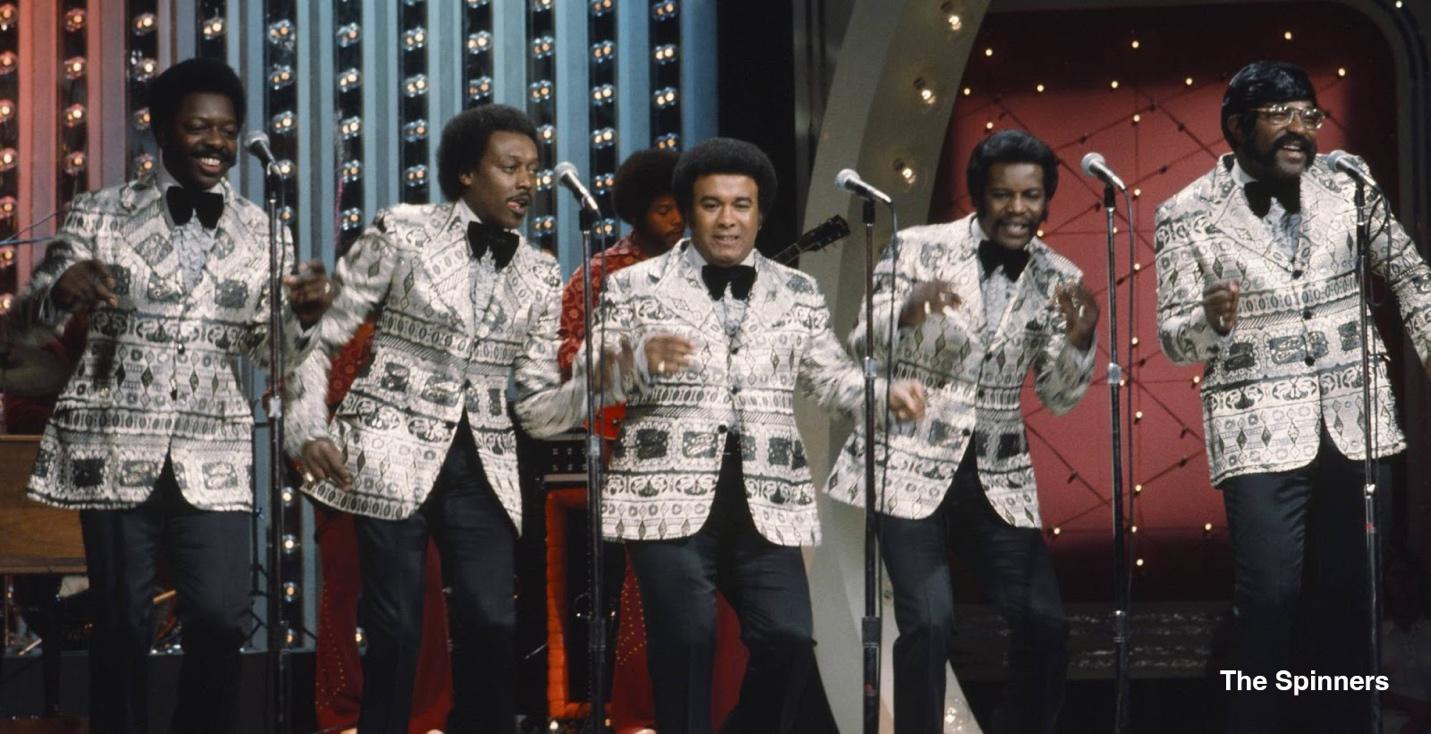
I’m sure that anyone who has been reading my EAR CANDY articles over the years are probably tired of hearing me bitch about rebranding and renaming tracks or not giving the actual artists’ names at all. But as a producer and recording artist myself, I find it really important to give credit where credit is due. So, when I see listings like this one for “I’ll Be Around” by Adri Block & Martina Buddle, it drives me crazy! Not only are they stealing the original vocals, but they don’t even mention The Spinners! Where do they get off? Is this some new agenda of this administration to just let anyone take credit for work they didn’t do? Well, as long as I have breathe in my body, I will set the record straight. I will tell you the truth of who the real artists are.
I have to admit that when I saw the Zillionaire Remix of “Kiss Me” by Sixpence None
The Richer pop up in my pool, I got a little nostalgic for the late 90s when I was in love with Frank Bletre. He bought me the CD single of this song for Valentine’s Day. Never thought that it would be remixed into something I might play in a set or for a floor. But here we are. Love it and can’t wait to program it into one of my video shows.
I recently spun in Montreal for a party called BALLS DEEP DISCO at L’ideaL as my alter-ego, Jade Elektra. I even performed a medley of my hits. It was a fun night. Mainly because it was a Disco themed party. And while I was only allowed to spin Classic Disco, I wished that I could have played the new Never Dull call “Big Disco Energy”! Great track! Hope they make more than a lyric video for it.
Our sixteenth track is another example of rebranding. The Disco Dom Refunk Mix of “Stephanie” by Cloonee, Young M.A. & InnRaw x Gigi Croccante is actually a remix of “Ooouuu” by Young M.A. Why rename the track? Why not just call it a remix of said track? Why do these producers and remixers feel the need to put their names first or
even in the mix at all when naming the artist? You remixed it….you didn’t write it or perform it!
Our next LGBT selection is the DE SOFFER Gonna Make A Lover Remix of “Love Today” by Mika. I didn’t really care for this song when it was released back in 2007. But this remix has made me reconsider playing it.
And speaking of cofusing LGBT artists, Demi Lovato has a new track out called “Fast”. It’s okay…not something that I’m gonna rush to play. Probably because she identified as non-binary and then changed it back to she/her pronouns. It kinda made me question her sexual identity as pansexual. Was it a publicity stunt like Azealia Banks claiming to be bisexual? Anyway… ”Fast” is cute but I don’t think it will be a big hit.
Our nineteenth selection is the Wasted Tuition Remix of “Undressed” by Sombr. When I looked this artist up, I was surprised that he had so many releases. I had maybe seen the name, but he never crossed my radar. And after listening to this remix, I can see why. This is so not my style or taste. This is what I call filler. I’m sure it’s a Pop song that will connect with some in my audience. So, this version is what I will play if I get a request.
I haven’t heard anything from Cazwell in a while. For a moment I thought he became and DJ and decided to just go that route. But he’s back with another banga called “Daddy” from a couple of months ago His usual wit and flow are still intact. I just wish
the video was not something filmed on a vertical phone for TikTok. Here’s my special plea…if you’re filming something with your phone – please turn it horizontal or landscape to get more of what you are filming. As long as you keep the subject matter in the center you’ll have something that can be edited for a music video or as a proper clip.
The twenty-first selection is the Mikey Barreneche & Glometrik Bootleg of the Green Velvet classic, “Percolator”. For me…nothing will ever compare to the origin from the 90s. This was a monster track in Black Gay Clubs! Da kids would lose their minds when this one would came on. And while it is nice that someone is still interested in updated it, this remix is just okay. I’d reach for the original before playing this.
And to close out of mix I decided to use the Moonlight Remix of Crazy Train 2025 by the now late Ozzy Osbourne. Honestly, I never really listened to any of his music. Heavy Metal was never my scene and hearing about him biting the head off a live bat at one of his concerts really made me not interested at all. I never got into or understood the fascination with The Osbournes reality TV show. I sorta found Sharon interesting when she was on The Talk, but her meltdown with Sheryl Underwood live on air really shined another light on her and I never cared that much afterwards. Kelly seemed promising for a brief moment in the 2000s with her cover of Madonna’s “Papa Don’t Preach” and the Chris Cox Remix of “One Word” but her anorexia just highlighted what L.A. can do to people. For some Ozzy was the King and Father of Heavy Metal For me he was a weird annoying mumbling reality TV personality. May he rest in peace. Don’t forget to download your FREE video mix of this EAR CANDY edition in the opening links and here’s a bonus link: https://mega.nz/file/AvckhAxD#qjmIzM5yru9E4KlnZFkrg5weMPZSx2vsOg-zyP-_u8k
